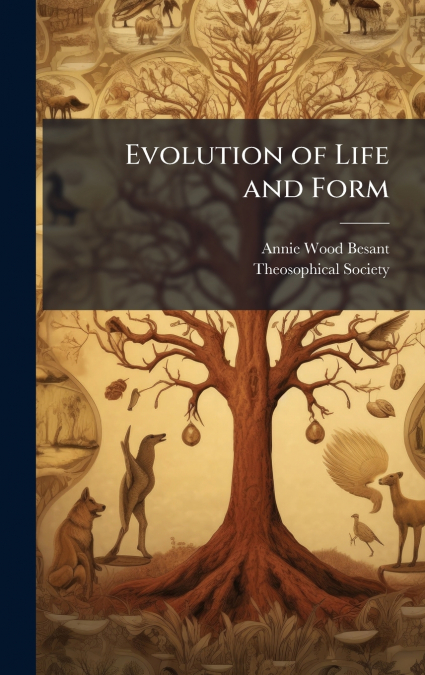
Annie Wood Besant / Theosophical Society (Great Britain)
Delve into the profound insights of Annie Besant with 'Evolution of Life and Form,' a collection of four lectures delivered at the Theosophical Society’s anniversary meeting in Adyar, Madras, in 1898. This work explores the theosophical perspective on the evolution of life, offering a unique synthesis of scientific inquiry and spiritual understanding. Besant’s lectures provide a fascinating glimpse into the interconnectedness of all living beings and the underlying principles governing their development.Besant, a prominent figure in the Theosophical movement, presents her visionary ideas with clarity and depth, inviting readers to contemplate the mysteries of existence and the dynamic processes shaping the world around us. 'Evolution of Life and Form' remains a valuable resource for those interested in theosophy, evolutionary theory, and the intersection of science and spirituality. Discover the timeless wisdom contained within these lectures and gain a deeper appreciation for the evolutionary journey of life.This work has been selected by scholars as being culturally important, and is part of the knowledge base of civilization as we know it. This work was reproduced from the original artifact, and remains as true to the original work as possible. Therefore, you will see the original copyright references, library stamps (as most of these works have been housed in our most important libraries around the world), and other notations in the work.This work is in the public domain in the United States of America, and possibly other nations. Within the United States, you may freely copy and distribute this work, as no entity (individual or corporate) has a copyright on the body of the work.As a reproduction of a historical artifact, this work may contain missing or blurred pages, poor pictures, errant marks, etc. Scholars believe, and we concur, that this work is important enough to be preserved, reproduced, and made generally available to the public. We appreciate your support of the preservation process, and thank you for being an important part of keeping this knowledge alive and relevant.